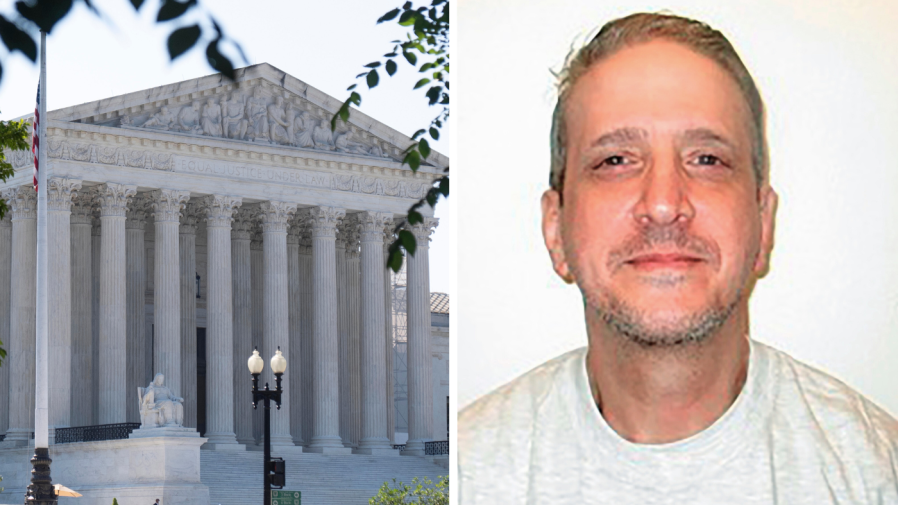
Oklahoma’s top prosecutor said Monday that the state intends to retry Richard Glossip for murder but seek only a life sentence, after the Supreme Court threw out the death row inmate’s capital conviction.
Oklahoma Attorney General Gentner Drummond (R) supported Glossip’s bid to overturn his conviction in a 1997 murder-for-hire plot, agreeing that the prisoner received an “unfair and unreliable” trial. However, he maintained that he does not believe Glossip is innocent.
The justices in February ruled that Glossip’s due process rights were violated, tossing his conviction and ordering a new trial in a rare victory for a death row inmate at the high court, which typically does not intervene in such cases.
“While it was clear to me and to the U.S. Supreme Court that Mr. Glossip did not receive a fair trial, I have never proclaimed his innocence,” Drummond said in a statement on Monday. “After the high court remanded the matter back to district court, my office thoroughly reviewed the merits of the case against Richard Glossip and concluded that sufficient evidence exists to secure a murder conviction.
“The same United States Constitution that guarantees our rights also ensures the rights of the accused,” he continued. “Unlike past prosecutors who allowed a key witness to lie on the stand, my office will make sure Mr. Glossip receives a fair trial based on hard facts, solid evidence and truthful testimony.”
Glossip was convicted for the 1997 killing of his former boss, Barry Van Treese. The motel owner was beaten to death by maintenance worker Justin Sneed but state prosecutors said Glossip ordered him to carry out the crime in a murder-for-hire scheme.
Sneed evaded the death penalty by agreeing to plead guilty and testify against Glossip, earning a life sentence in prison instead. Glossip was found guilty and given a death sentence in 1998, but that conviction was overturned due to ineffective counsel on appeal. He was retried in 2004 and again convicted and sentenced to death.
However, Glossip said the state denied him due process by withholding evidence from the defense and knowingly letting the jury hear false testimony from Sneed, a key witness. Drummond emerged as an unlikely ally to Glossip during his appeal.
“We conclude that the prosecution’s failure to correct Sneed’s trial testimony violated the Due Process Clause,” Justice Sonia Sotomayor wrote for the majority.
Sotomayor’s majority opinion was joined by four other justices. Justice Amy Coney Barrett concurred in part and dissented in part. Justice Clarence Thomas dissented, which Justice Samuel Alito joined. And Justice Neil Gorsuch did not participate in the case, likely because he participated in one of Glossip’s earlier appeals while serving on a lower court.
Drummond said his office would not seek the death penalty against Glossip because Sneed, who admitted to killing Van Treese, is serving a life sentence without the possibility of parole.
Glossip’s next court date is set for June 17.
“The Van Treese family has endured grief, pain and frustration since the murder of their loved one, and my heart goes out to them,” Drummond said. “The poor judgment and previous misconduct of past prosecutors have only compounded that pain and frustration.
“While I cannot go back 25 years and handle the case in the proper way that would have ensured true justice, I still have a duty to seek the justice that is available today,” he said.


